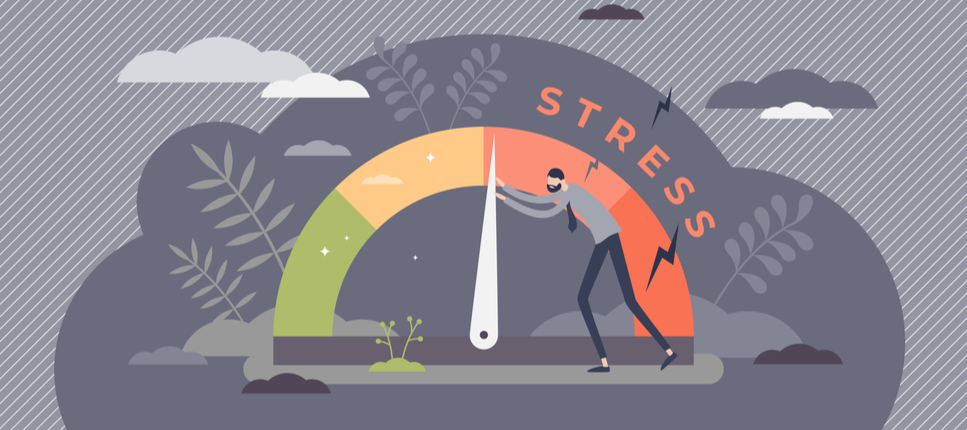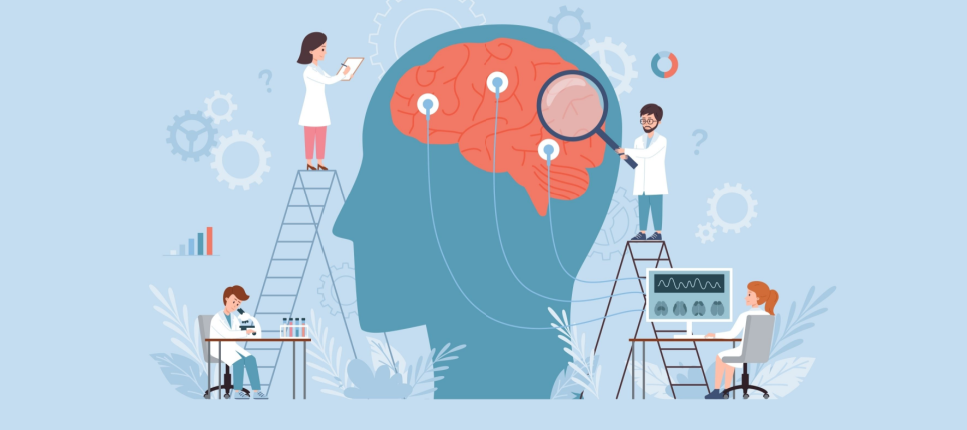From encoding to recall to consolidation, stress can interfere with each of the key stages of memory. In fact, it represents one of the biggest obstacles to the smooth running of this process. Even once information is stored in our long-term memory, stress can momentarily prevent us from retrieving it. That said, the relationships between stress and memory are complex chemistry, some of which may surprise you. Here’s a look at some of them!
Survival mechanism. The stress reaction is a survival mechanism that aims to mobilize the energy necessary to fight or flee danger as soon as we perceive that our physical or psychological integrity is threatened. Essential in prehistoric times, this physiological response, which has lasted until today, is, let’s face it, less adapted for homo modernus, who rarely faces real threats to his survival on a daily basis. Therefore, we must learn to “manage” our stress to avoid it becoming chronic — as too often repeated and even simply anticipated — in which form it can cause many physical and psychological ills, while our system designed to respond to it is weakened.
Some experts distinguish between negative and positive stress, calling the latter “eustress” and associating it with short-term stress that gives us the energy and impetus to take up a challenge, increase our performance, stimulate us to create, etc. Whether we talk about stress or eustress, the physiological mechanisms at work are the same.
At the source. Stress is caused by a situation that presents one or more of the following four characteristics: a diminished sense of control, unpredictability, novelty or threat to the ego (Sonia Lupien, Ph. D., and the Centre for the Study of Human Stress (CESH)). Some sources of stress affect us all invariably (e.g., suffering a natural disaster), while others are subjective and affect each individual to varying degrees (e.g., taking an exam).
Feeling your heart pounding, sweating, clammy hands, becoming hypervigilant and ready to react are some of the signs of stress that prepare us to “save our skin”; signs that result from the production and release of adrenaline and cortisol, the so-called “stress hormones.” These hormones send their message to cells in different parts of the body, including the brain.
Hormones that stimulate memory. The brain areas with the most stress hormone receptors are the hippocampus, the amygdala and the prefrontal cortex, three interconnected regions involved in the development of new memories. And one of the effects of cortisol is precisely to sharpen our ability to memorize information that, in a stressful situation, is useful for our survival so that we are warned and better equipped in case of a similar experience.
That said, stress hormones are also secreted when we experience significant moments… happy ones. In fact, events that trigger strong emotions, positive or negative, have the power to capture our attention and are better remembered. This explains why we remember in detail the context in which we were on September 11, 2001, for example, a phenomenon called “flashbulb memory,” which is part of our autobiographical memory.
Too much or not enough stress hormones. After conducting studies on the subject, the Center for the Study of Human Stress has shown that our ability to learn and remember new information is reduced when we secrete too much stress hormone, but also too little. These results indicate that stress hormones — and more precisely a “normal” level of stress hormones — would be essential for the proper functioning of memory.
Other researchers have noted in their study a correlation between high cortisol levels and impaired memory and visual perception, with changes at the microstructural level in the brain, and a smaller brain volume, particularly in women (Echouffo-Tcheugui and al., 2018). Finally, it is worth mentioning that the authors of a longitudinal study of some 500 older adults observed an association between chronic stress and an increased risk of experiencing amnestic-type mild cognitive decline, a cognitive decline — potentially reversible — that is characterized by memory loss, among other things, and that represents a risk factor for Alzheimer’s disease (Katz and al., 2016).
Related articles:
- Long-Term Memory: Its 3 Chronological Processes
- Our two short-term memories
- The fascinating brain: 5 amazing facts
- 8 Types of Memory… to Remember!
- Learning and Forgetting: New Perspectives on the Brain
- 5 Factors Influencing Memory Process
- Deciphering the Brain
- Brain, Learning and Neuroscience: Test Your Knowledge!
- Brain and neuroscience: Test Your Knowledge
- The 3 Speeds of Thought
- Cognitive Bias: When Our Brain Plays Tricks On Us
- Attention, in numbers
Author:
Catherine Meilleur
Creative Content Writer @KnowledgeOne. Questioner of questions. Hyperflexible stubborn. Contemplative yogi.
Catherine Meilleur has over 15 years of experience in research and writing. Having worked as a journalist and educational designer, she is interested in everything related to learning: from educational psychology to neuroscience, and the latest innovations that can serve learners, such as virtual and augmented reality. She is also passionate about issues related to the future of education at a time when a real revolution is taking place, propelled by digital technology and artificial intelligence.






